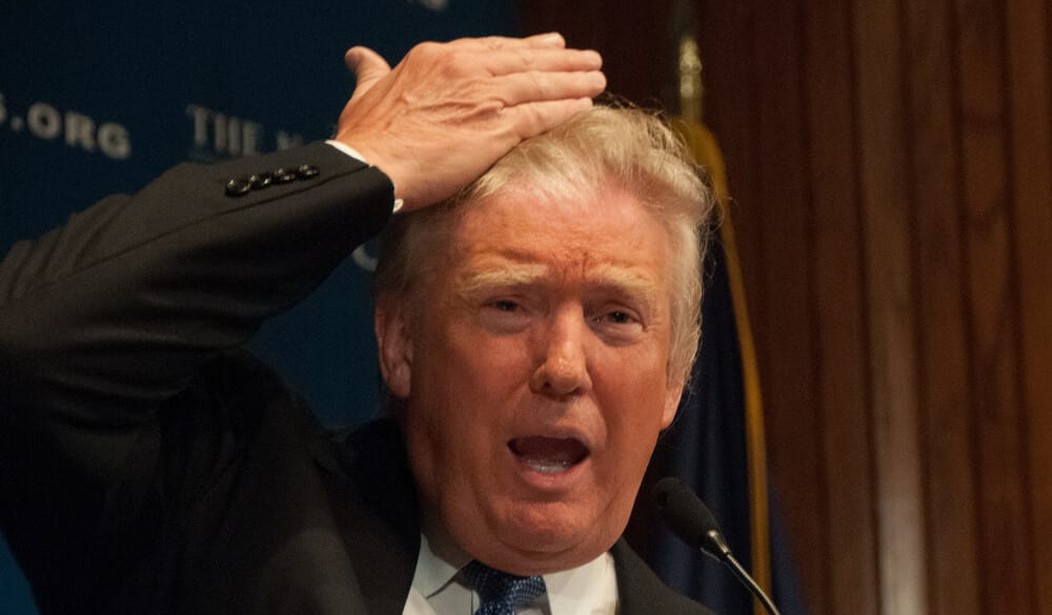In response to conflicts among students over pro-Trump chalk messages on the campus of Appalachian State University, the Board of Trustees rewrote school policy, putting support of minorities over laws that protect free speech at public universities.
In early September, students at App State started scribbling messages in chalk across campus. It was a war of words on pavement between pro-Trump students and anti-Trump students. Some students complained, saying the messages were racist and offensive.
Initially, Chancellor Sheri Everts responded by upholding principles of a free society. In a letter to students on September 15, she reminded them that “at Appalachian, we staunchly support free speech and academic freedom.”
We encourage our community to debate vigorously, challenge and defend ideas, and advocate for your positions. At the same time, we must hold one another accountable to do so in a manner that does not demean, vilify or attack the humanity of [other] community members. In a democratic society, we often experience a clash of ideas, but no one is “less than” anyone else. To attempt winning an argument by endeavoring to marginalize others kills intelligent discourse and is an affront to true democracy.
I encourage each member of our community to hold fast to their ideals and beliefs, and in doing so, respect the humanity and individual value of others. As we move forward together, let us accept the challenge to embrace our best selves.
That didn’t put an end to the controversy, however, as students continued to complain that the chalked messages were offensive and they didn’t feel safe on campus. The chancellor described the incidents as “near-physical altercations and expressions of worry about possible physical attacks.”
The Board of Trustees and Faculty Senate decided to take action by updating the school’s chalking policy to allow only “recognized student organizations and University departments for the purpose of promoting events or programs that occur at Appalachian State University or in the Boone community with a specific date, time, and location.”
The board made this decision even as it recognized that the right to assemble and to exercise free speech is “guaranteed by the United States Constitution and the North Carolina Constitution.”
Those rights are not absolute and may be subject to reasonable time, place and manner restrictions imposed by the university to protect public safety and university property, to minimize disruption of university operations and to afford assembly and free speech opportunities to other members of the university community and public.
Even though the chancellor and the board said they were worried about the safety of all students, their main concern seems have been making minorities feel comfortable on campus, free from offensive language they interpret as racist. This is evident from the chancellor’s letter on September 28, in which her primary focus is on proving “strong demonstrations of support for our underrepresented students.”
The adoption of these resolutions sends a strong signal from our top leadership that Appalachian values diversity of thought, belief and community, and is committed to fostering an environment that is supportive to all.
It’s also the focus of the chancellor’s first letter when she touted the school’s participation in “an internationally renowned Sustained Dialogue initiative, in order to engage members of the Appalachian Community in dialogues that cultivate strong, trusting relationships, foster respect for each individual and cultivate everyone’s ability to contribute to positive change.”
Diversity, inclusivity, and civility—not actual safety—seem to be the main concerns of the leadership at App State. Social engagement and creating a “safe” environment has now become an excuse to restrict free speech.
While it’s true that free speech isn’t absolute (you can’t yell “fire” in a crowded movie theater), protecting the feelings of minority students at a public university is not a cause for limiting that right.
The way to create an safe environment is to punish unlawful behavior. If someone makes a threat, investigate the incident and discipline them. As for anything else, including chalked political messages you don’t like, that’s just what living in a democracy looks like. It’s not always nice, it’s not always comfortable, and it’s not always civil. But it is free.









Join the conversation as a VIP Member